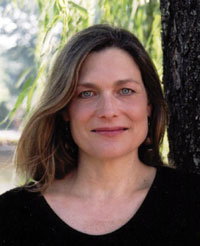Most poets can't help themselves. They must write poetry. I have said that Scott thinks and dreams in poetic verse and language. Poems flow out of him like an artesian well.
In the most recent class I taught at Tri-County Community College, I could not interest my students in poetry. I mean they simply said no. They did not want to write poetry. They were not interested in reading it either even though I told them how much reading poems could help their prose writing.
I like this statement by Samuel Taylor Coleridge on the subject of writing poetry and prose.
In the most recent class I taught at Tri-County Community College, I could not interest my students in poetry. I mean they simply said no. They did not want to write poetry. They were not interested in reading it either even though I told them how much reading poems could help their prose writing.
I like this statement by Samuel Taylor Coleridge on the subject of writing poetry and prose.
"I wish our clever young poets would remember my homely definitions of prose and poetry; that is prose; words in their best order; - poetry; the best words in the best order." ... Samuel Taylor Coleridge
Choosing the best words is an important part of making a good poem. I think my favorite part of writing a poem is going back, revising and finding the best word I can to put my reader right where I am when I am writing.
The poem below tells how a handsome young ski instructor in Colorado teased me, a young married woman and a complete novice at snow skiing. I blame most of this on the altitude.
What do you think? Did the words I used help your image of what happened?
Choosing the best words is an important part of making a good poem. I think my favorite part of writing a poem is going back, revising and finding the best word I can to put my reader right where I am when I am writing.
The poem below tells how a handsome young ski instructor in Colorado teased me, a young married woman and a complete novice at snow skiing. I blame most of this on the altitude.
High in Colorado
He
poses, hip cocked in red and blue,
sun-glistened
face of Eros turned to me,
a
fledgling atop the icy slope. My
breath
quickens in foolish adoration
at
the sound of my name from his mouth.
Knees
bent, I push on poles and slide
down
to him, past him, racing for the edge.
"Sit
down," he cries. My legs collapse,
long
shoes shoot sidewise. I try to rise,
but
can't. He twirls, zips toward me,
digs
in. You
know a mogul is a South
Georgia girl who
falls and can't get up.
He
laughs, his teeth like sparkling icicles.
Giddy
Aspen air heliums my brain,
overflows
my heart that dances in triple time.
He
yanks me up, skims powder to the lift.
At
sea level, snow dreams
melt
into arrogant soap bubbles
as
his smiling face yellows
on a faded brochure beneath my ski apparel.
on a faded brochure beneath my ski apparel.
... Glenda Council Beall
What do you think? Did the words I used help your image of what happened?




